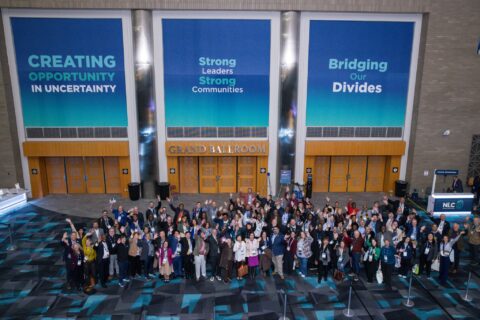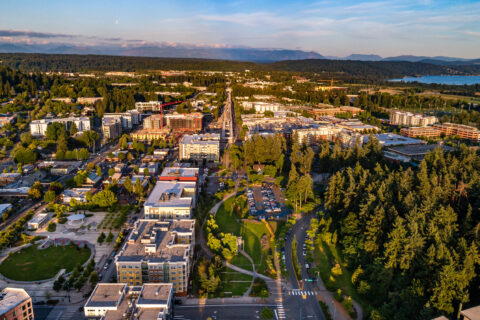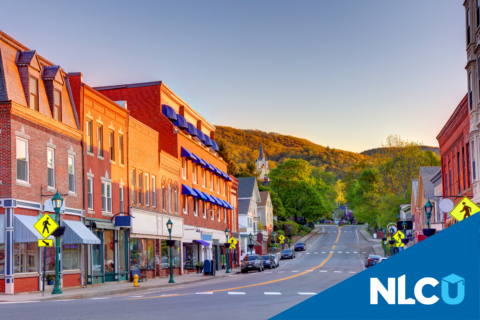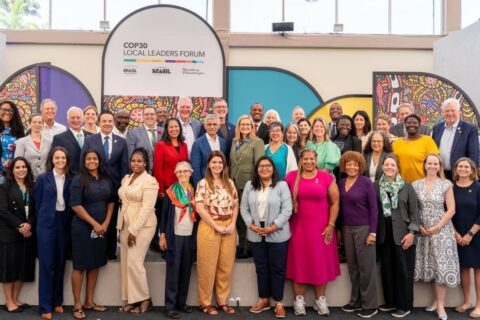Co-authored by Jenna Johnston, Program Associate at the National Association of Regional Councils, and Jenna Spencer, Intern at the National League of Cities
The Inflation Reduction Act (IRA) provided funding to help communities address climate change, including decreasing greenhouse gas emissions and investing in clean energy. Climate Pollution Reduction Grants (CPRG) were born from the IRA, which were awarded to states, cities, tribes and regional agencies to support these efforts.
The CPRG came in two phases: the planning phase and the implementation phase. The planning phase provided a grant to communities to create a regional Priority Climate Action Plan (PCAP) of near-term, implementation-ready projects to lower greenhouse gas emissions in six sectors: electricity generation, industry, transportation, buildings, agriculture/natural and working lands and waste management. The implementation phase provided a grant to begin implementing the projects laid out in the PCAP.
While 80 regions (as well as 45 states, including DC and Puerto Rico, plus 94 tribes and territories) received planning grants, only 25 states, cities and regional agencies — as well as 34 tribes — won an implementation grant. Although existing climate work will soon get underway from those that received CPRG implementation grants, many communities that dedicated time and resources toward gathering community input and developing PCAPs need to seek funding and/or financing elsewhere to bring their plans and projects to fruition. The Miami Valley region in Ohio is one of these.
The Miami Valley Regional Planning Commission’s PCAP laid out nine possible projects to help decrease greenhouse gas emissions: clean fleets, virtual power plants, virtual power plants plus, neighborhood deep retrofit program, transit transformation, carbon sequestration, clean cars for all, active transportation, and organic waste reduction and sustainable materials management.
Three local leaders from the Miami Valley Regional Planning Commission and the City of Dayton detail some of their plans under a CPRG planning grant to reduce greenhouse gas emissions, address environmental injustices and build community resilience across the region. Watch below:










